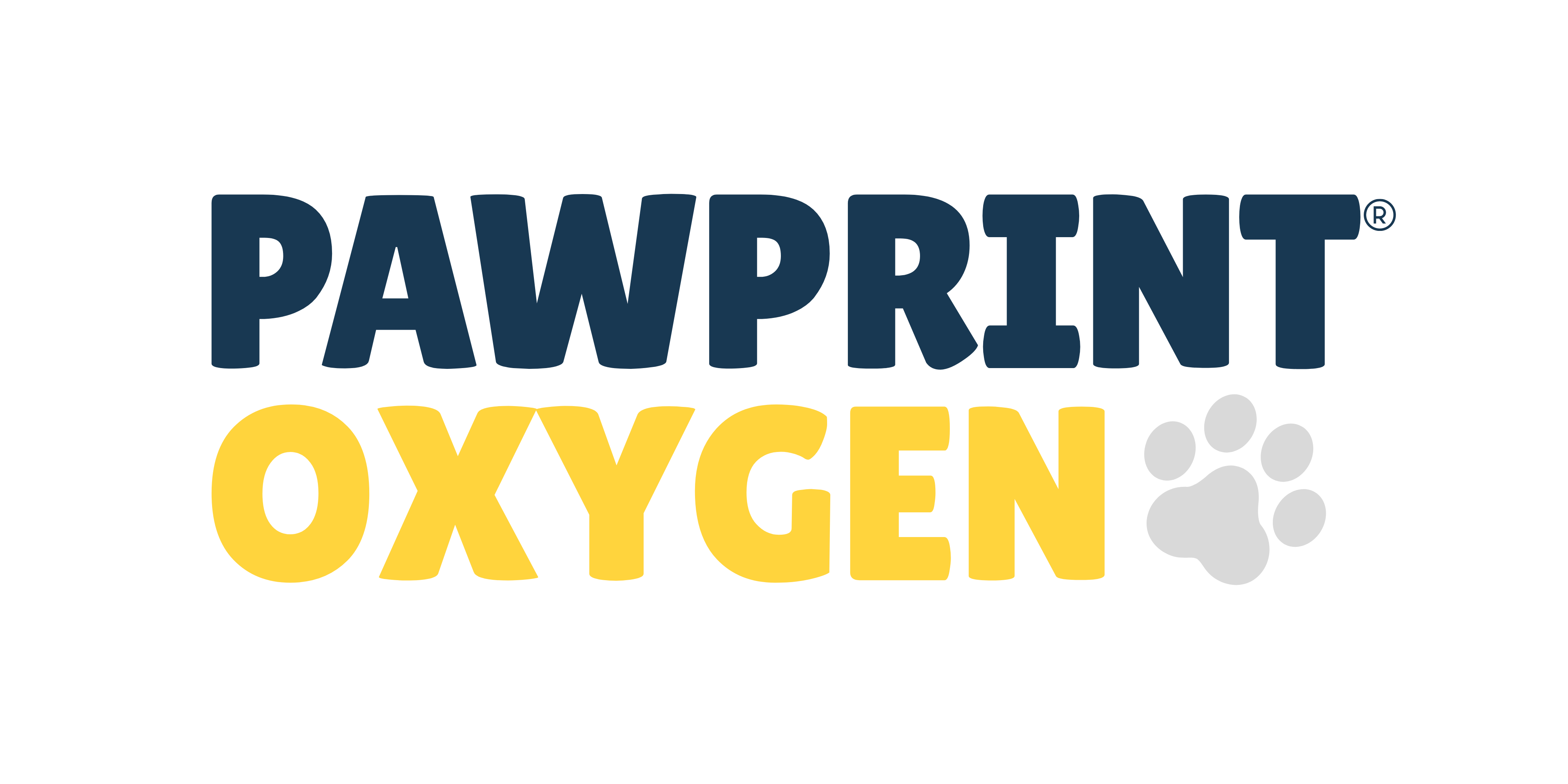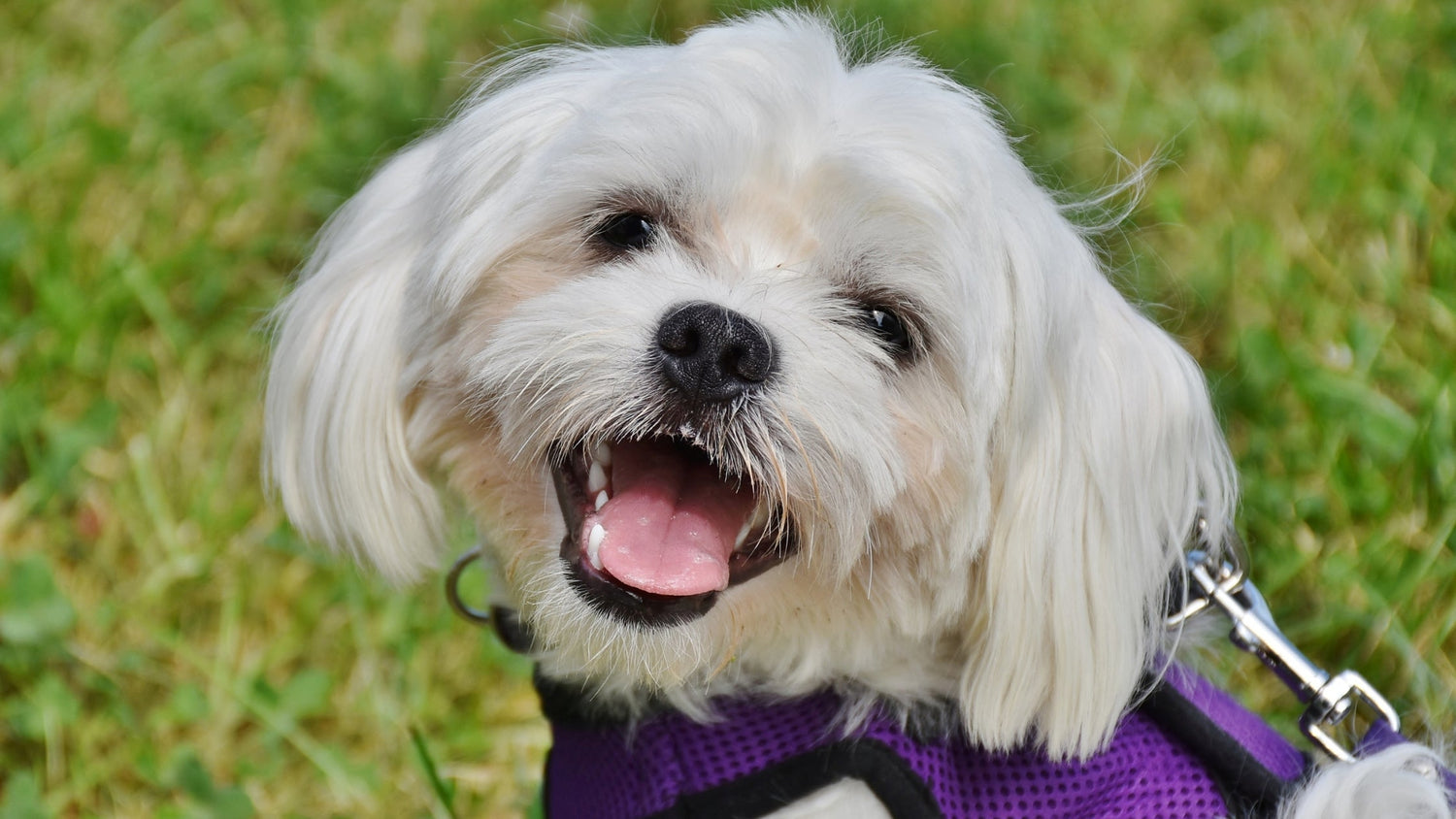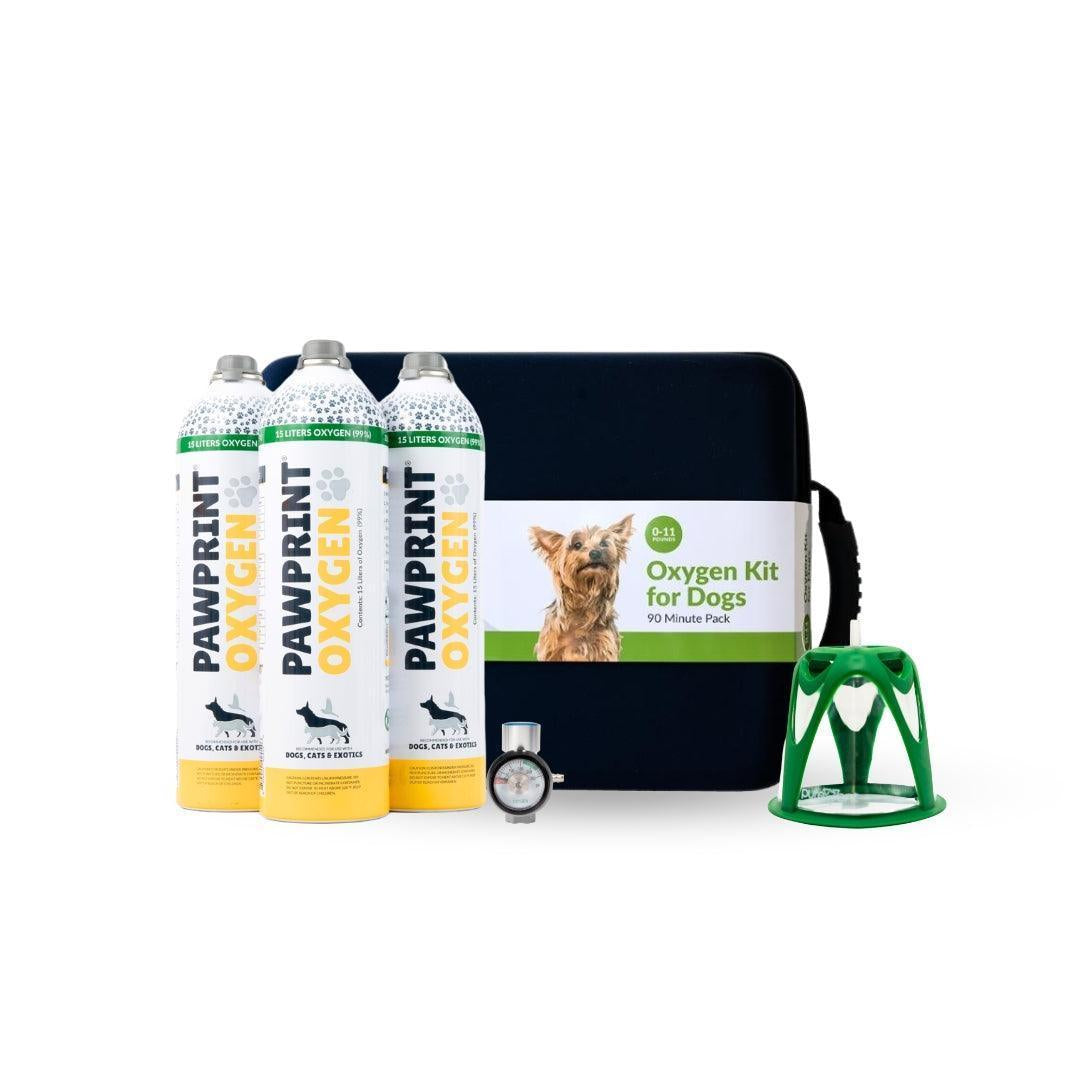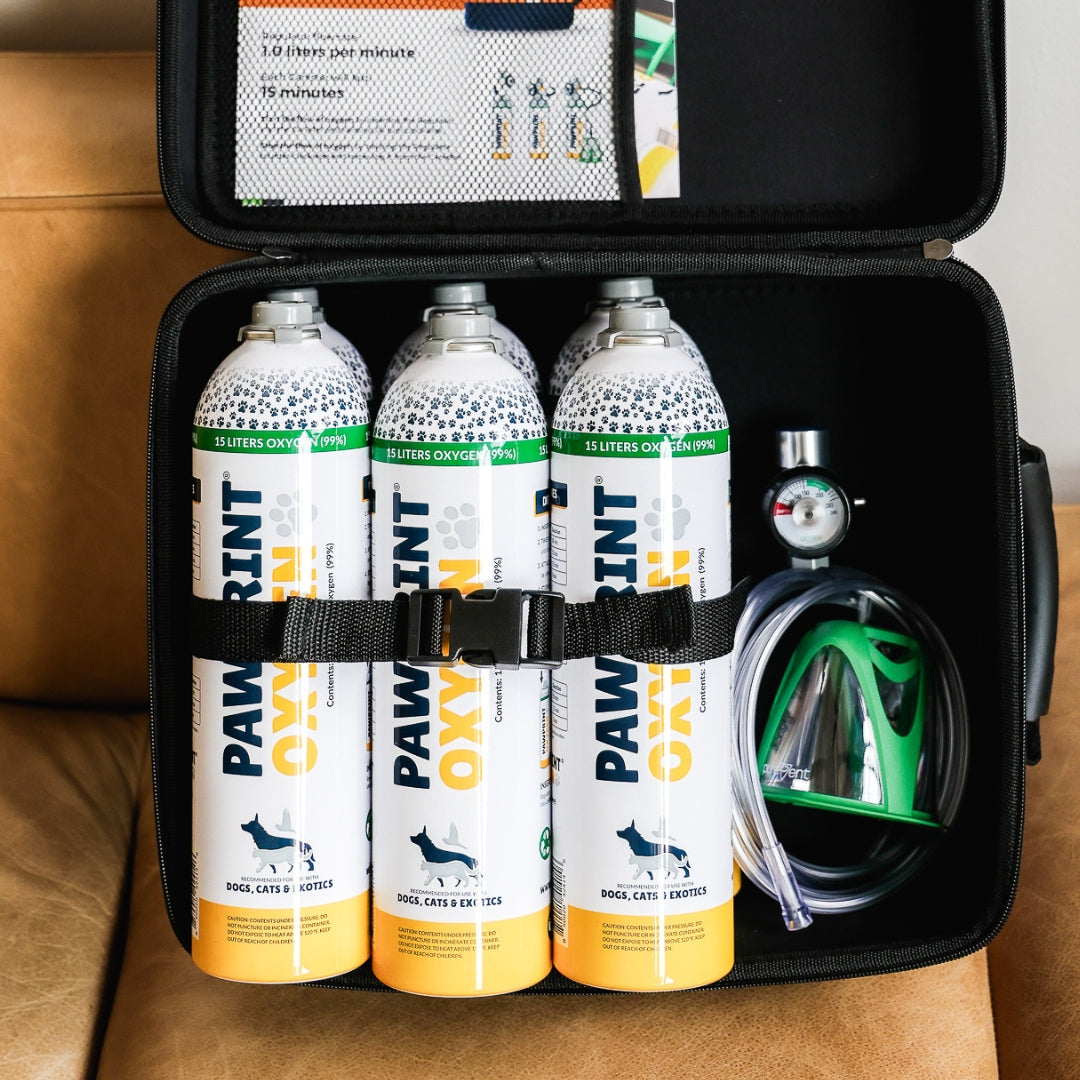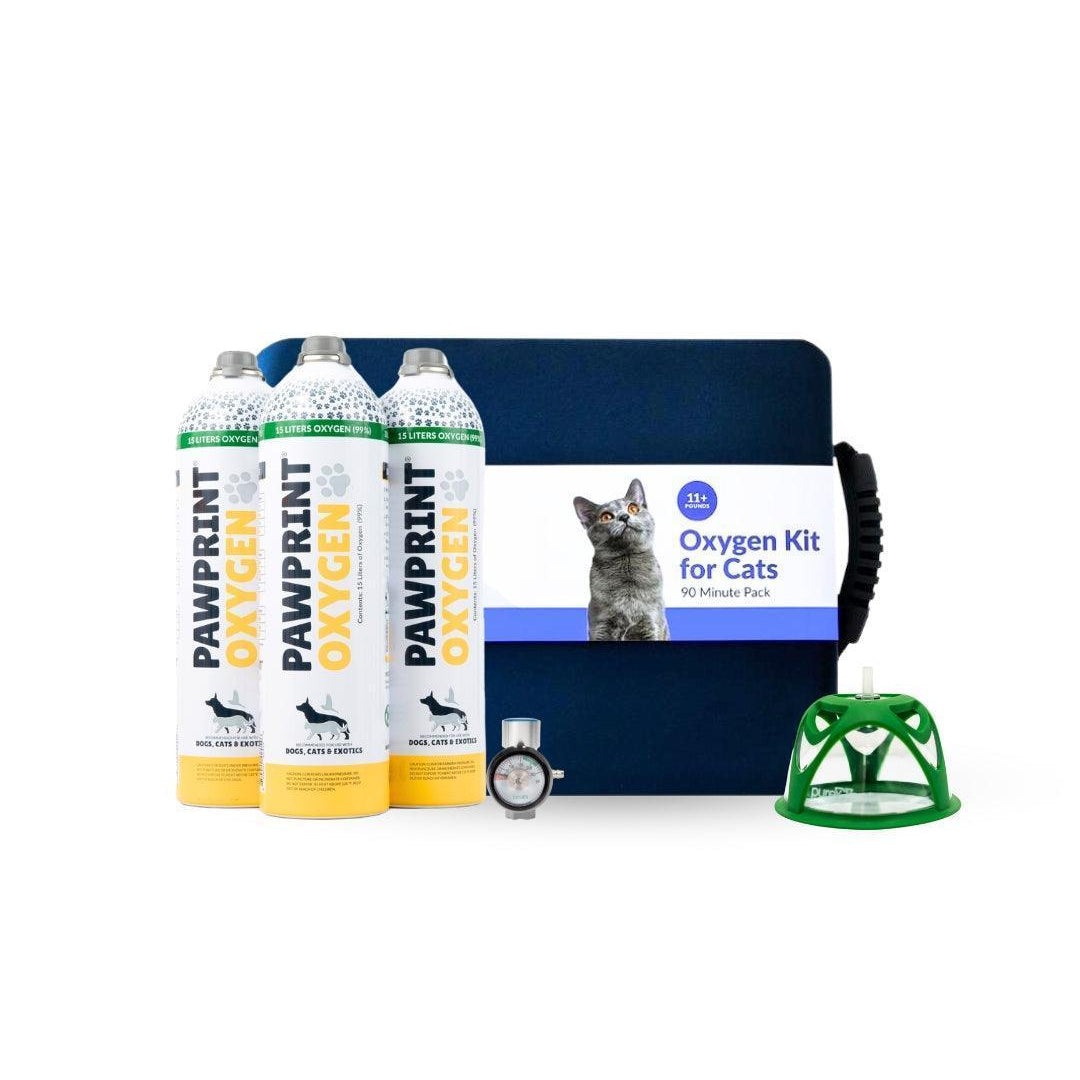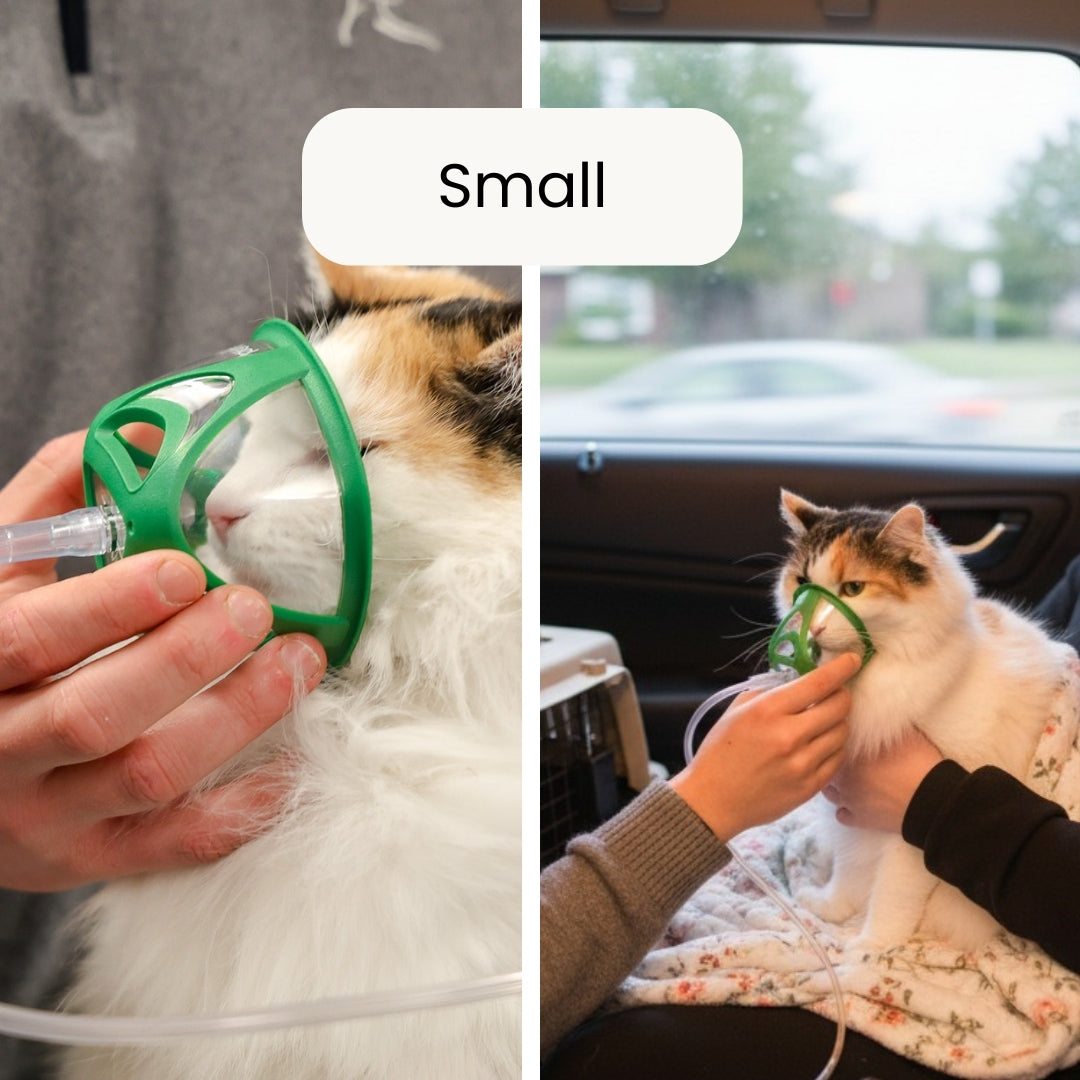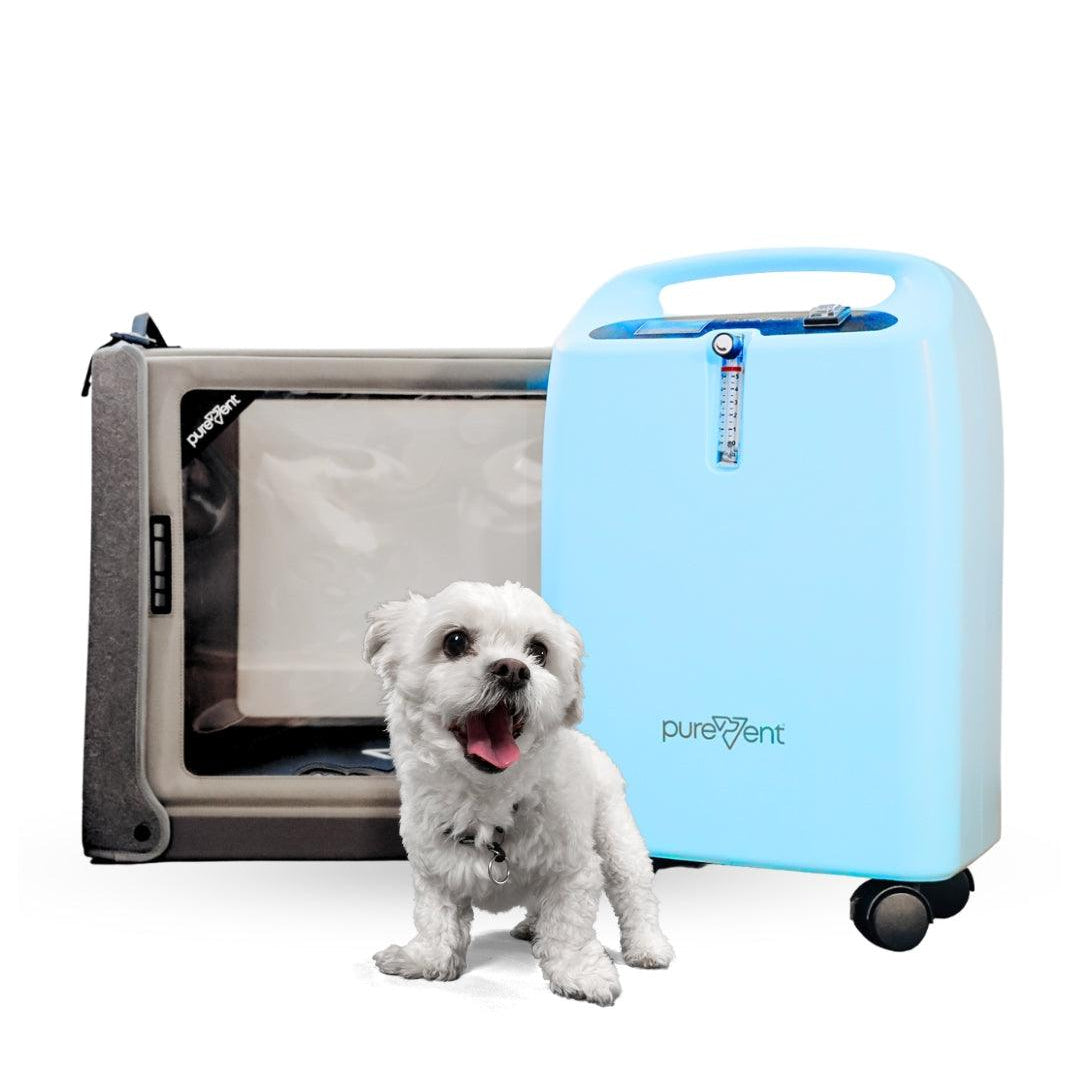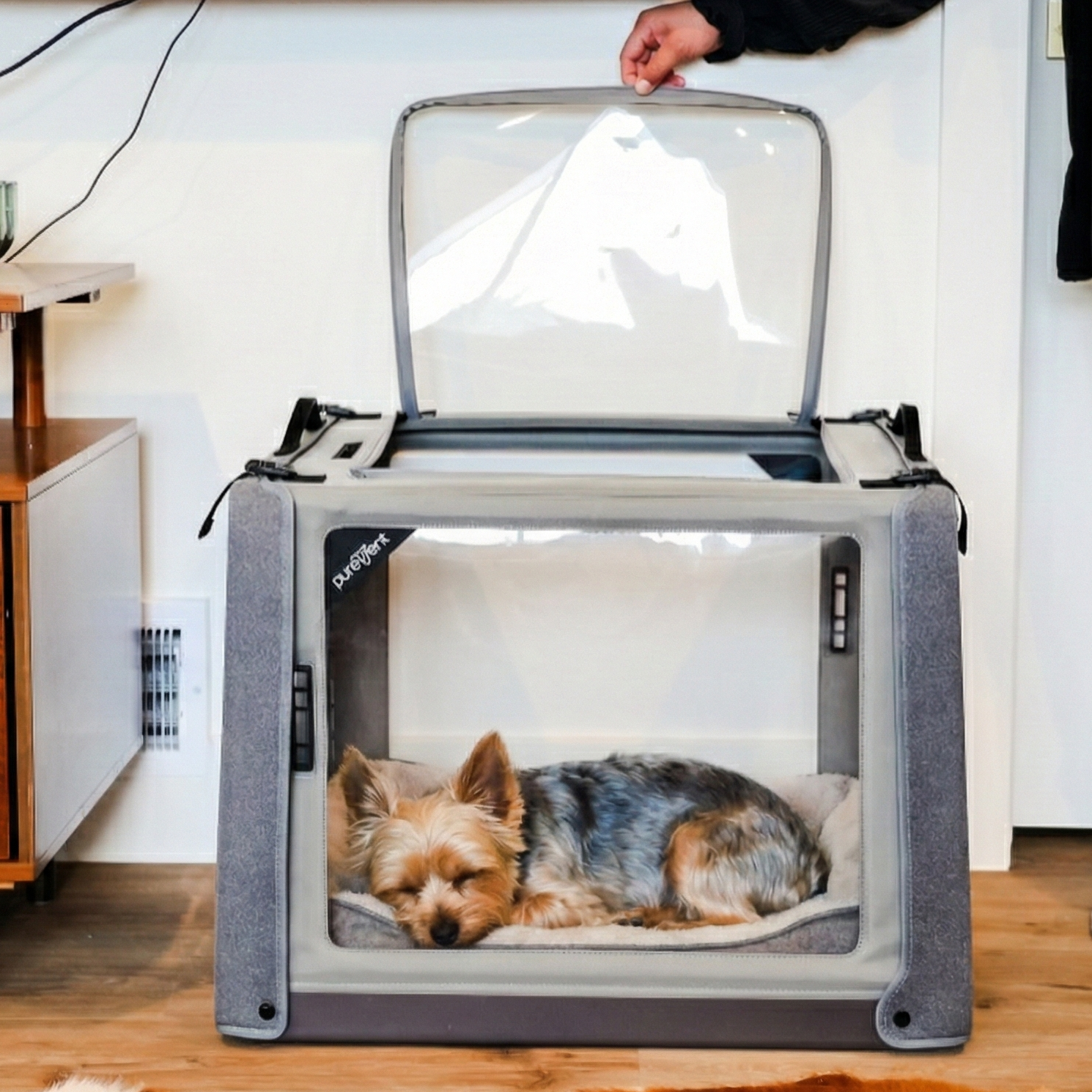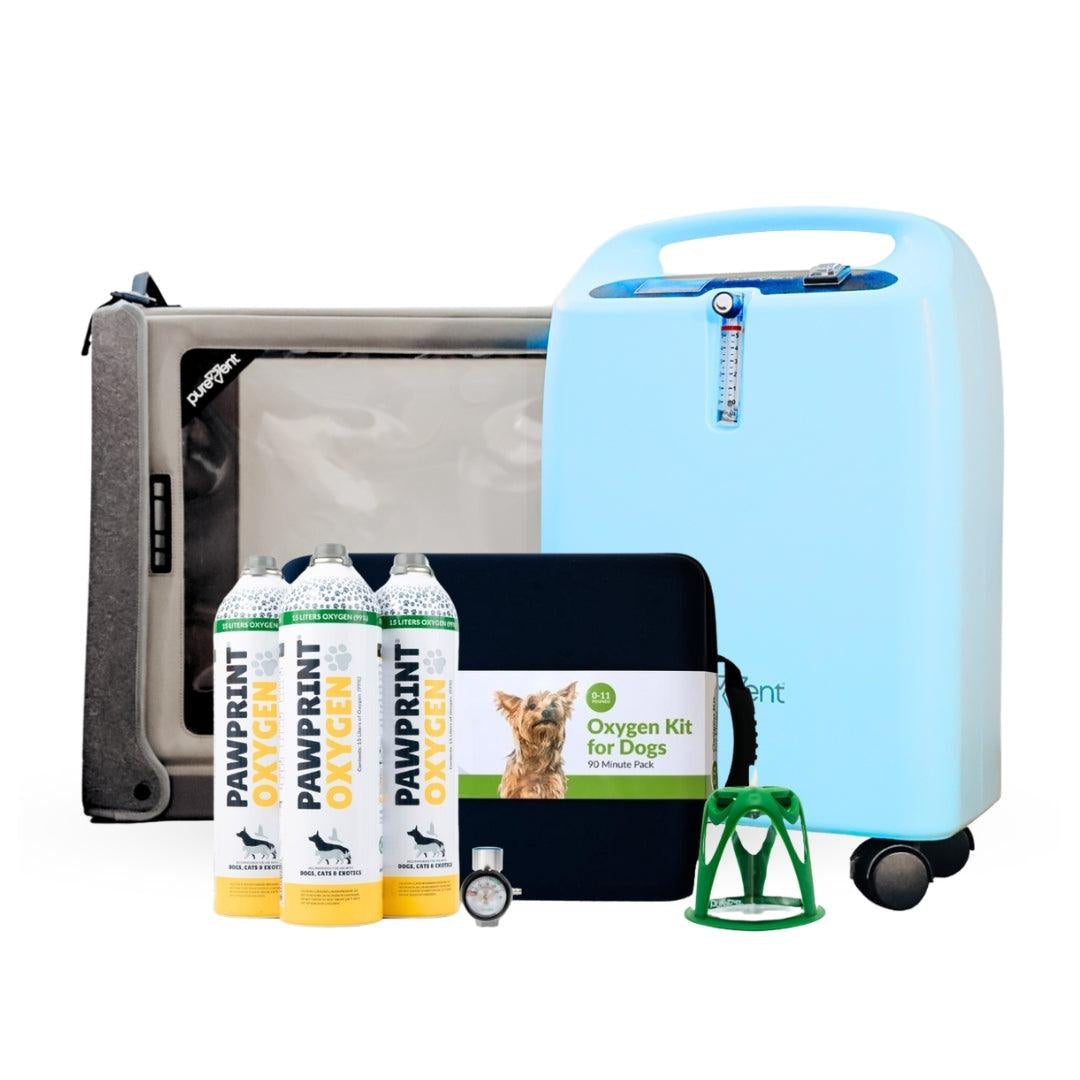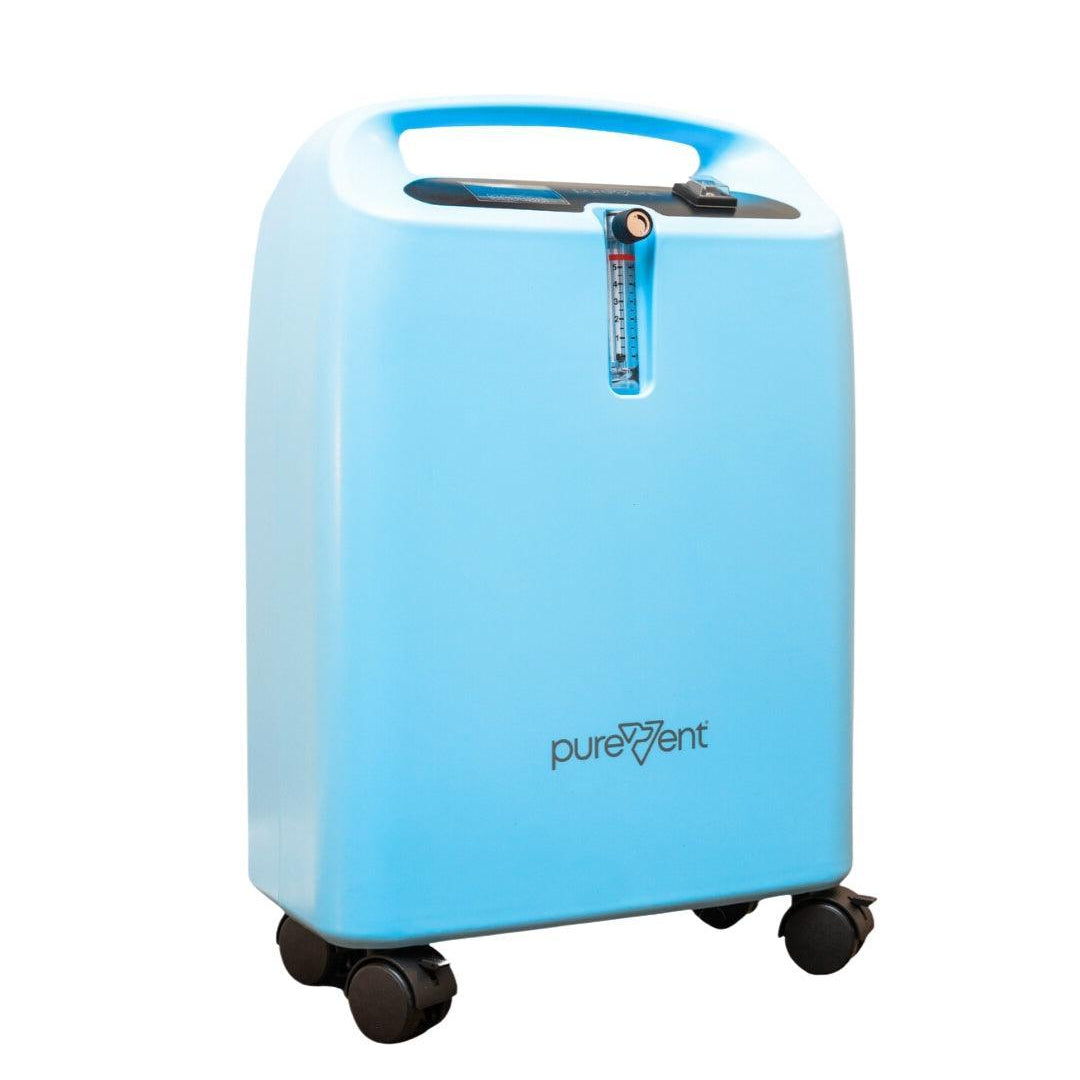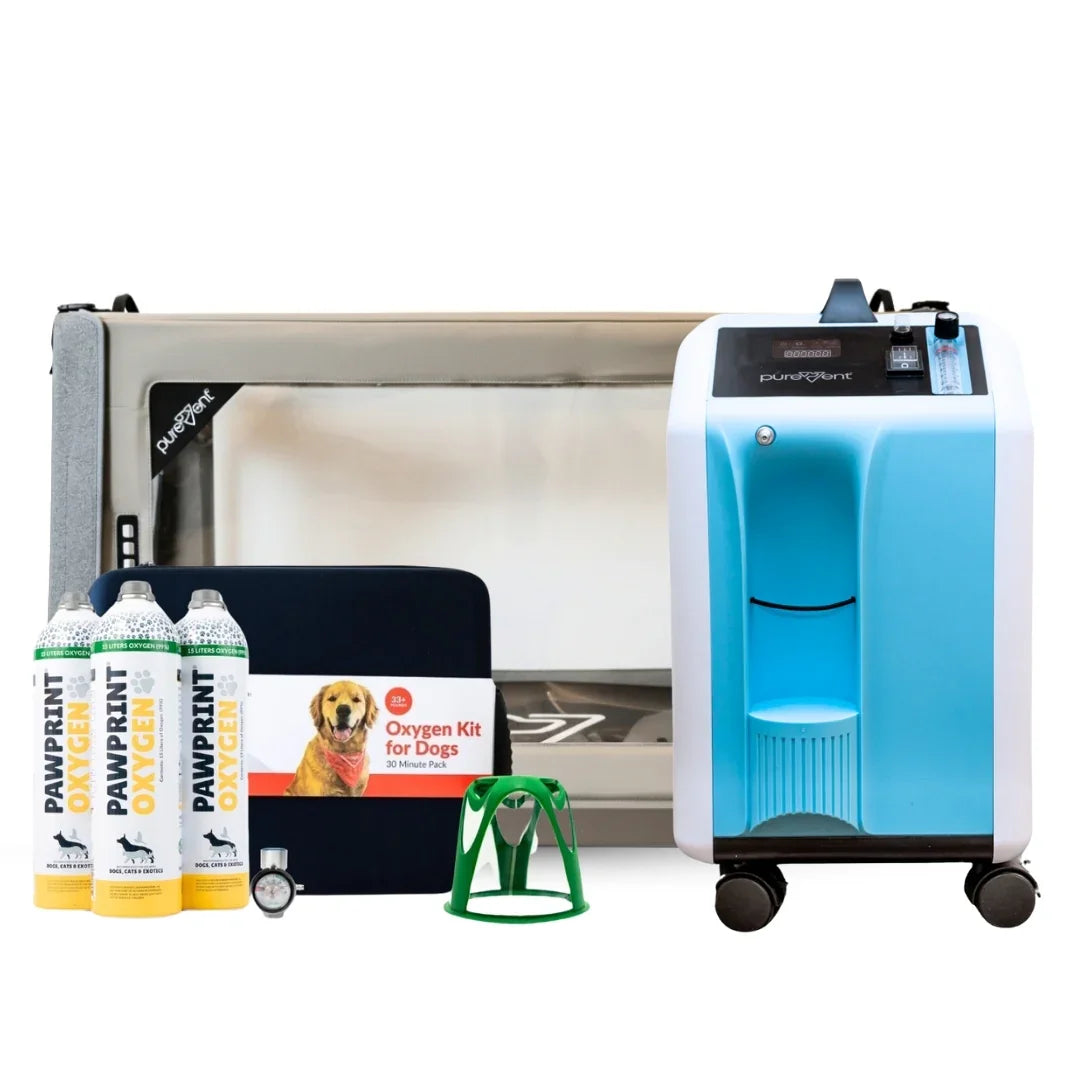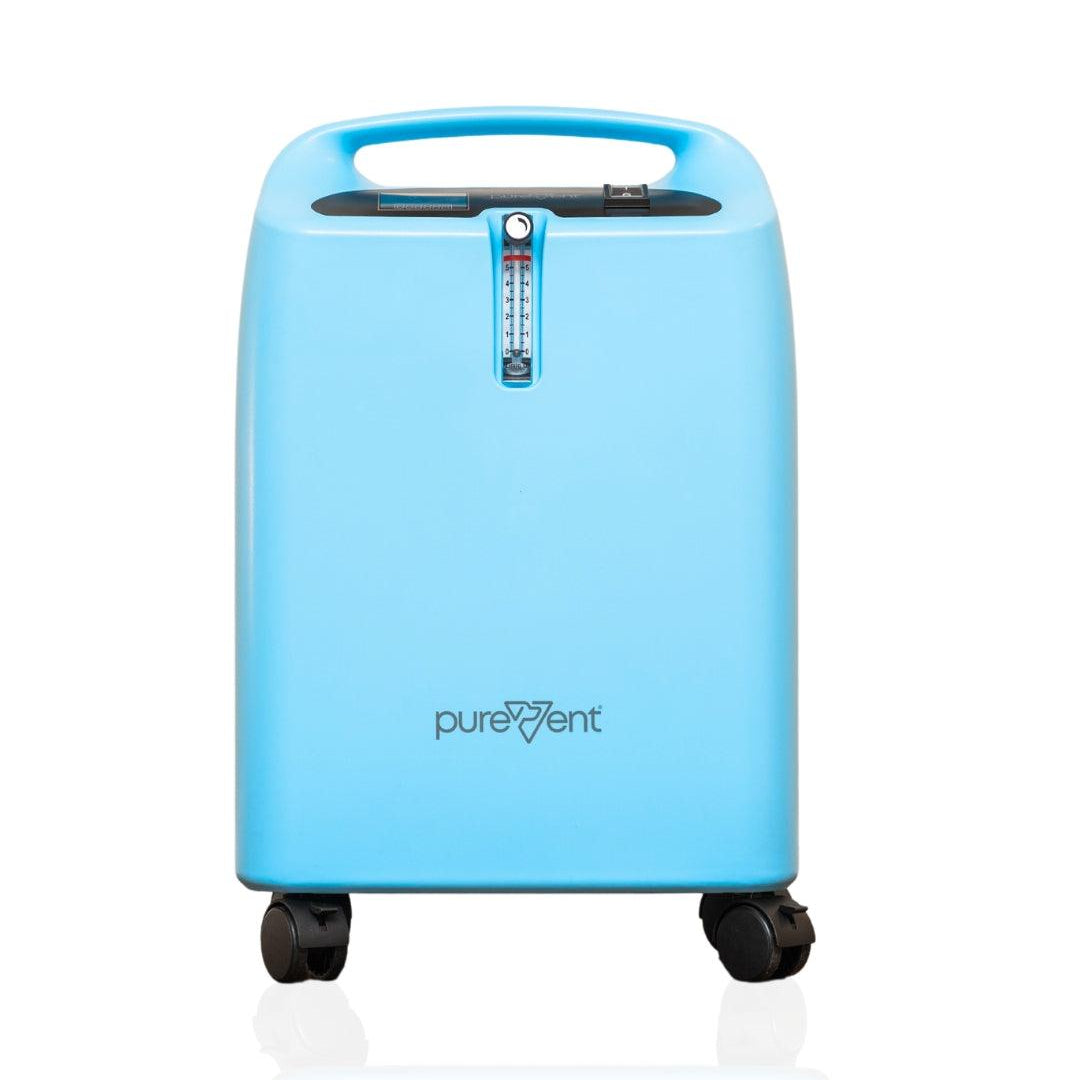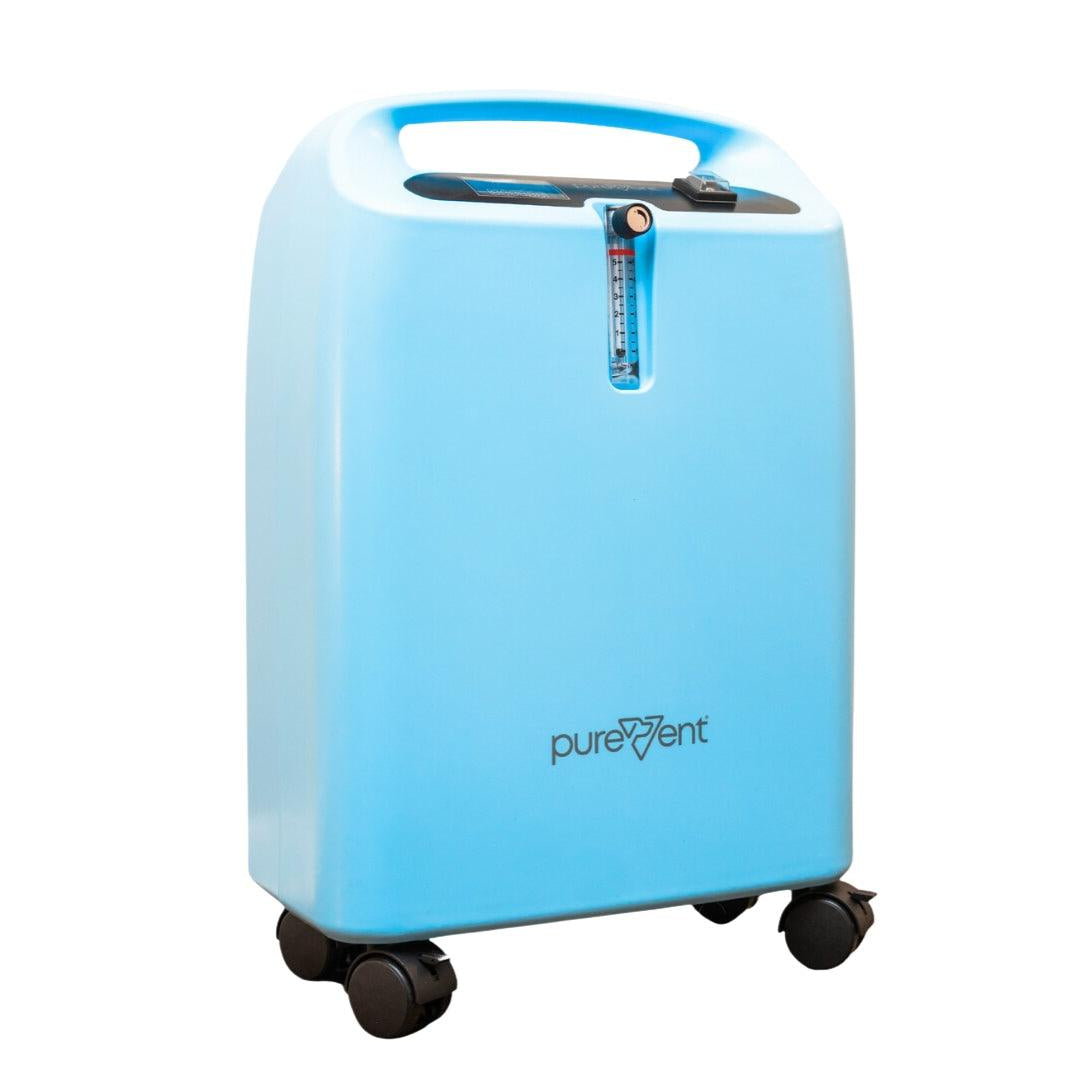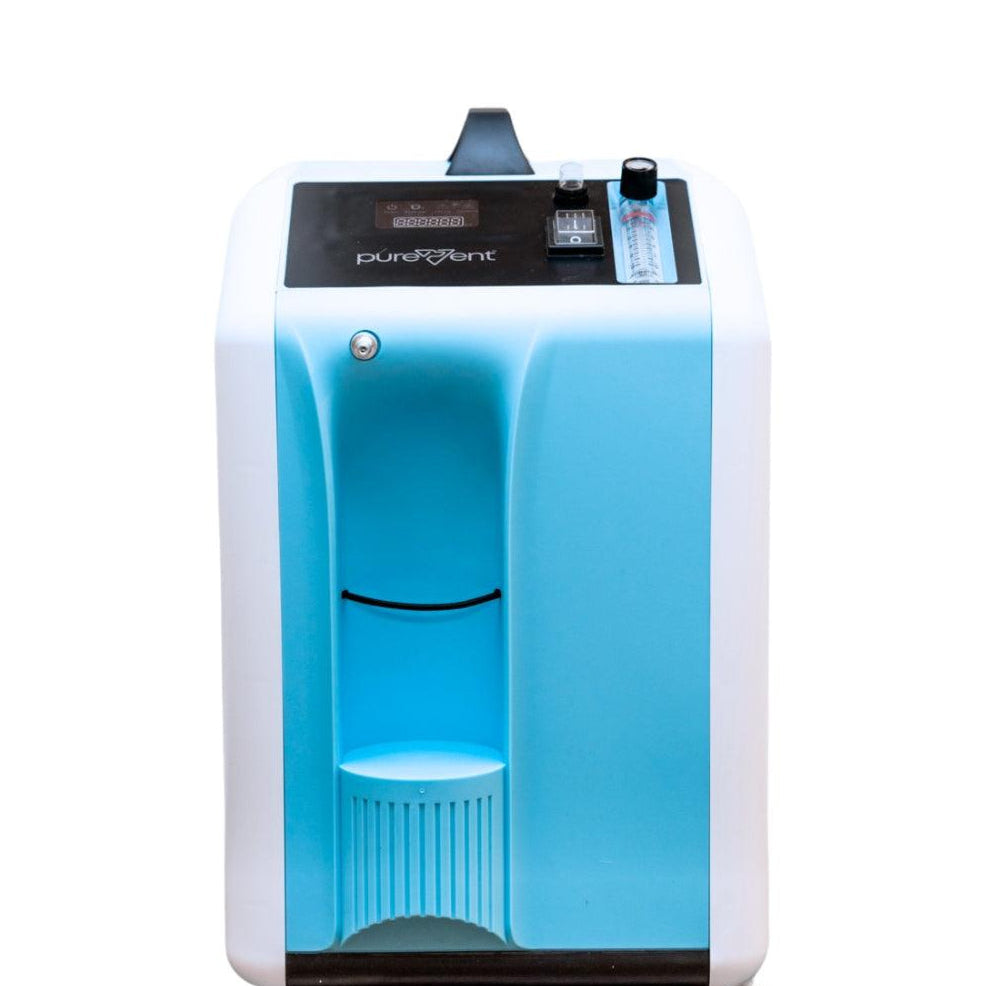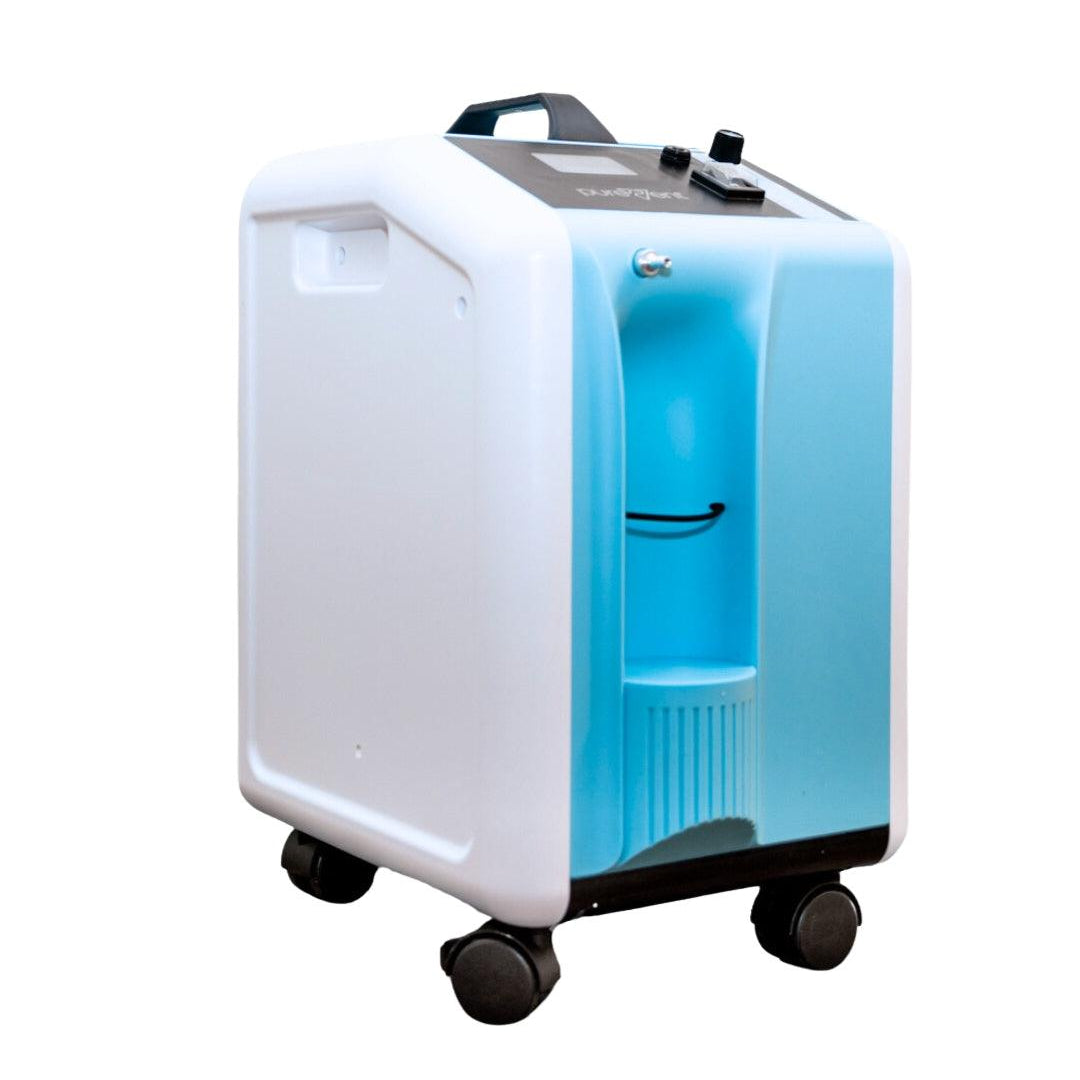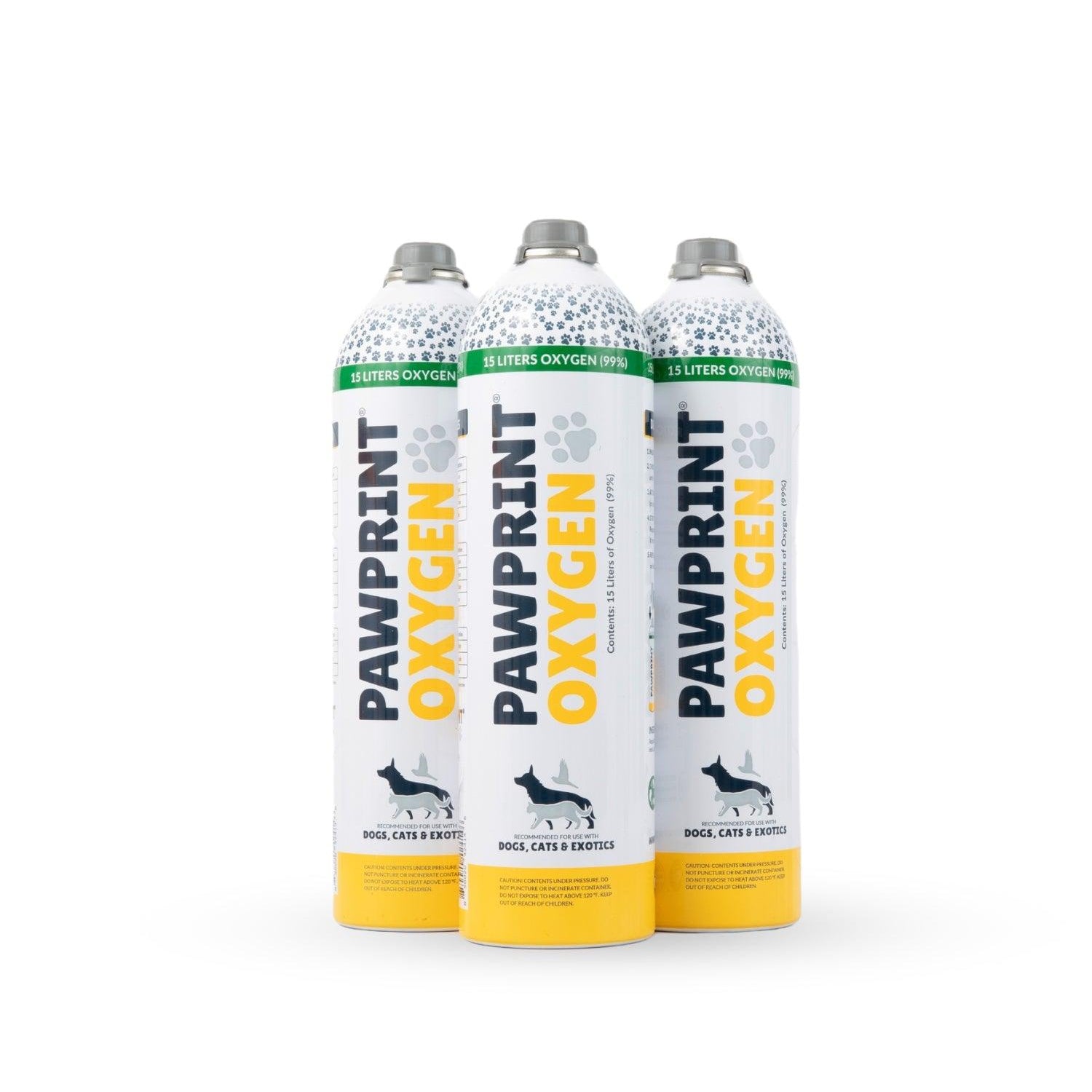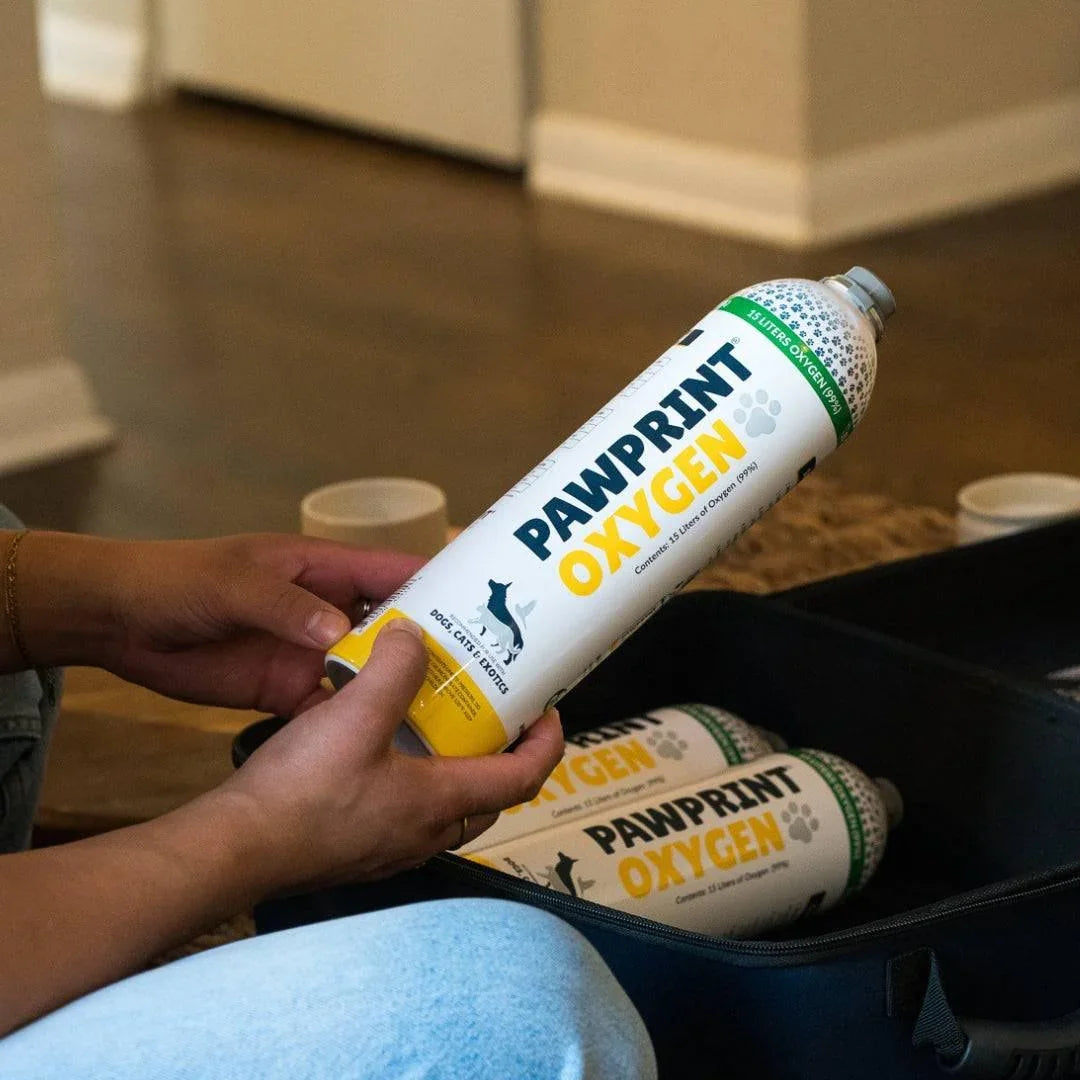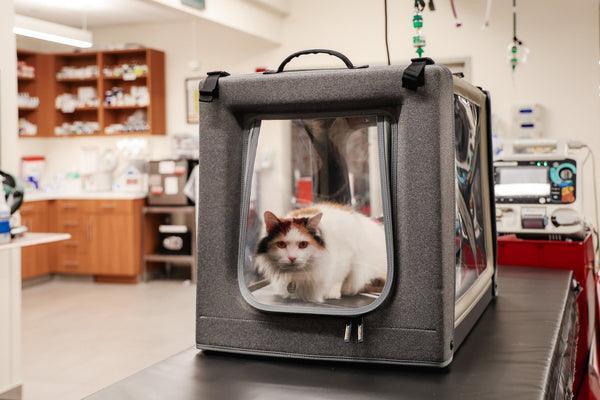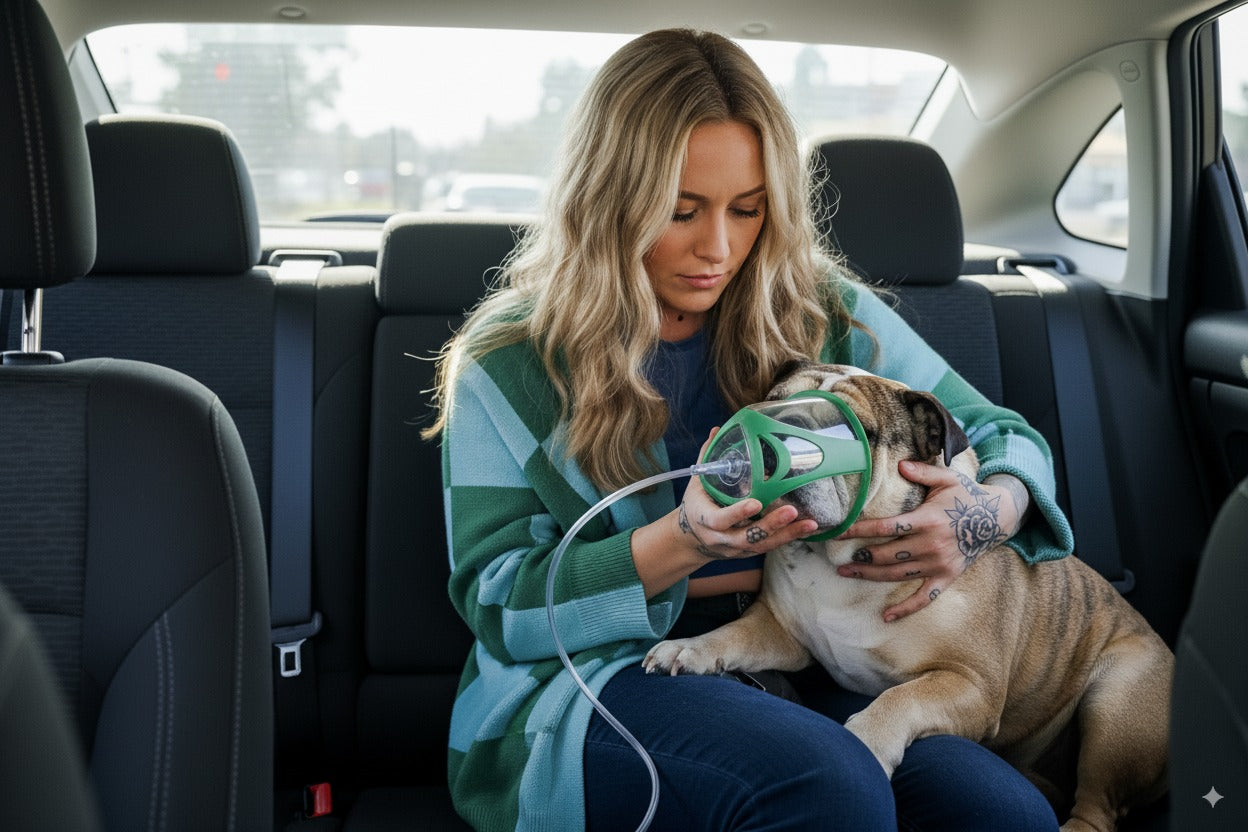Collapsed trachea in dogs occurs when the tracheal rings weaken, flattening the windpipe and restricting airflow. Symptoms include persistent coughing, breathing difficulties, and gagging, especially during excitement or activity. While distressing, this condition can be managed to improve affected dogs' quality of life.
Natural treatments offer a gentle, non-invasive approach to managing collapsed trachea symptoms. These methods, including herbal remedies, oxygen therapy, and lifestyle changes, can complement conventional treatments to reduce discomfort and ease breathing when used under veterinary guidance.
This article explores several natural, non-invasive methods for managing collapsed trachea in dogs. These treatments should support, not replace, professional veterinary care as part of a comprehensive approach.
Table of Contents
1. Weight Management for Collapsed Trachea in Dogs
Excess weight is a common contributing factor to the severity of symptoms in dogs with a collapsed trachea. When a dog carries extra weight, it increases pressure on the trachea, making it harder for the windpipe to stay open and for the dog to breathe comfortably. This added strain can worsen symptoms such as coughing, labored breathing, and fatigue. Maintaining a healthy weight is essential for managing collapsed trachea in dogs.
Here are some tips to help keep your dog at an optimal weight:
- Balanced Diet: Choose a nutritious, calorie-controlled diet with lean proteins. Consult your vet for proper portioning.
- Regular Exercise: Engage in gentle, short activities like leash walks. Avoid strenuous exercise, especially in hot weather.
- Monitoring: Track your dog's weight regularly. If issues persist, seek veterinary advice for diet adjustments or weight management plans.
The benefits of maintaining a healthy weight are significant for dogs with a collapsed trachea. Weight loss reduces the pressure on the trachea, making it easier for the dog to breathe and decreasing the frequency of coughing episodes. Additionally, a healthy weight contributes to overall well-being and can improve your dog's energy levels, mobility, and quality of life.

2. Humidifiers and Air Purifiers
Environmental factors can greatly impact collapsed trachea in dogs. Dry air, especially during winter or in arid climates, can irritate the throat and exacerbate symptoms such as coughing and labored breathing. Maintaining the right level of humidity and air quality in your home can help ease breathing difficulties and provide relief for affected dogs.
- Role of Humidity: Dry air irritates the trachea, which can lead to more coughing. Humidifiers add much needed moisture to the air, soothing the respiratory tract and preventing inflammation, especially during dry winter months.
- Using Humidifiers and Air Purifiers: Place a cool-mist humidifier near your dog's resting area in dry conditions. Use an air purifier with a HEPA filter to reduce irritants. Make sure you clean filters regularly for effectiveness.
- Preventing Throat Irritation: Humidifiers and air purifiers create a comfortable breathing environment. Added humidity prevents dryness and inflammation, while air purifiers remove cough-triggering pollutants, helping your dog breathe easier.
By creating a more supportive indoor environment with the help of humidifiers and air purifiers, you can help manage the symptoms of a collapsed trachea in dogs and improve their overall comfort.
3. Herbal Remedies
Herbal remedies can offer a natural way to help soothe the throat and manage inflammation in dogs with a collapsed trachea. Certain herbs have properties that may ease discomfort, reduce irritation, and support respiratory health. While these remedies can be beneficial, it is essential to use them safely and under the guidance of a veterinarian.
Common Herbs to Help Collapsed Trachea in Dogs:
- Marshmallow Root: Known for its mucilaginous properties, marshmallow root creates a soothing coating over the mucous membranes. This can help ease throat irritation and reduce coughing in dogs with a collapsed trachea. Its gentle, anti-inflammatory effects make it a popular choice for pets with respiratory issues.
- Licorice Root: Licorice root has natural anti-inflammatory and soothing properties. It can help reduce inflammation in the throat and airways, making breathing easier for dogs. It also acts as an expectorant, which can aid in clearing mucus from the respiratory tract. However, it is important to use licorice root carefully, as prolonged use can lead to side effects, especially in dogs with certain health conditions like high blood pressure.
- Mullein: Mullein is another herb that may benefit dogs with a collapsed trachea. It is known for its ability to support respiratory health by reducing inflammation and soothing irritated tissues. Mullein can also act as a mild expectorant, helping to keep the airways clear.
These herbs can soothe the throat, reduce irritation, and ease inflammation caused by collapsed trachea, potentially decreasing coughing episodes and improving comfort.
Always consult a vet before using herbal treatments. They can ensure safety, determine proper dosage, and check for potential medication interactions. By incorporating herbal remedies under professional guidance, you may be able to provide additional comfort and support for collapsed trachea in dogs.
What causes a collapsed trachea in dogs?
A collapsed trachea in dogs is primarily caused by a weakening of the cartilage rings that support the trachea, or windpipe, which leads to the trachea flattening and narrowing, making breathing difficult. Factors that may contribute to the development of collapsed trachea in dogs are a genetic predisposition, age-related degeneration, obesity, chronic respiratory issues, environmental irritants, neck trauma, and congenital defects.
What are the symptoms of a collapsed trachea in dogs?
The symptoms of a collapsed trachea in dogs can vary in severity but generally include chronic coughing, difficulty breathing, gagging, wheezing, exercise intolerance, cyanosis (bluish gums or tongue), anxiety, and collapse.
What should I do if my dog has a coughing episode?
If your dog has a coughing episode due to a collapsed trachea, here are some steps you can take to help soothe them:
Stay Calm and Reassuring
– Dogs are sensitive to their owners' emotions, so remaining calm can help prevent your dog’s anxiety from worsening the episode.Minimize Activity and Stress
– Keep your dog still and reduce any stimuli that could heighten their excitement or stress. If they were active before the episode, try to gently calm them down.Use a Harness Instead of a Collar
– If your dog has a collapsed trachea, it’s best to use a harness at all times, as collars can put additional pressure on the trachea, especially during a coughing episode.Move to a Cool, Well-Ventilated Area
– Warm or humid environments can exacerbate breathing difficulties. Moving your dog to a cooler area with fresh air can help them breathe more easily.Provide Oxygen if Available
– If your dog has a severe episode or chronic issues, supplemental oxygen can help. If you have access to an oxygen concentrator or mask, it can provide relief, especially during prolonged episodes.Offer Water Carefully
– A small sip of water may help clear the throat, but avoid forcing it, as this can worsen coughing.Gently Massage the Throat
– Some dogs find relief with gentle, soothing massage along the throat, which may help relax the trachea slightly and ease coughing.Administer Prescribed Medications
– If your veterinarian has prescribed cough suppressants, bronchodilators, or anti-inflammatories, follow their instructions for dosage, especially during an episode.Distract Your Dog
– Light distraction, such as a gentle petting or soft words, may help some dogs relax and break out of a coughing cycle.Know When to Seek Veterinary Help
– If the coughing episode is prolonged, worsens, or your dog shows signs of distress (such as blue gums or fainting), contact your veterinarian or an emergency vet immediately.
Regular check-ups with your veterinarian can help monitor the progression of tracheal collapse and ensure you have a management plan tailored to your dog’s needs.
4. Acupuncture and Acupressure
Acupuncture and acupressure, traditional Chinese medicine techniques, offer natural options for managing collapsed trachea in dogs. These methods can alleviate discomfort, reduce inflammation, and promote relaxation.
How Acupuncture/Acupressure Can Relieve Tracheal Discomfort:
- Acupuncture: Inserting thin needles into specific points stimulates healing, relaxes muscles around the trachea, reduces inflammation, and improves respiratory function.
- Acupressure: Applies gentle pressure to specific points, promoting relaxation and alleviating discomfort. It's a needle-free alternative for pet owners.
While scientific studies are limited, growing anecdotal evidence suggests positive results. Many dogs show improved breathing and reduced coughing after treatments. Acupuncture's proven effects on pain relief and inflammation in humans and animals indicate potential benefits for canine respiratory issues.
Consider incorporating acupuncture or acupressure into your dog's care plan as a natural, non-invasive way to manage collapsed trachea symptoms. Always consult a veterinarian and work with certified practitioners for the best care.

5. Aromatherapy
Aromatherapy can be a helpful natural treatment for collapsed trachea in dogs, especially when stress or anxiety contributes to their symptoms. Calming essential oils, such as lavender and chamomile, have soothing properties that may help relax the muscles around the trachea, making it easier for your dog to breathe and reducing the likelihood of coughing episodes. However, it's important to use essential oils safely and appropriately around pets.
Benefits of Using Calming Essential Oils:
- Calming essential oils like lavender and chamomile can reduce anxiety in dogs, easing collapsed trachea symptoms. Frankincense may also support respiratory health through relaxation and anti-inflammatory effects.
- Aromatherapy creates a soothing environment, helping manage the condition during stressful situations like travel or thunderstorms.
Safe Methods for Introducing Aromatherapy to Dogs:
- Diffusing Essential Oils: One of the safest ways to use aromatherapy for collapsed trachea in dogs is through a diffuser. Use a diffuser to disperse a few drops of essential oil into the air, making sure the room is well-ventilated. Start with small amounts to gauge your dog's reaction and ensure they do not find the scent overwhelming.
- Aromatherapy Sprays: You can also make a gentle mist by mixing a few drops of essential oil with water in a spray bottle. Lightly mist your dog’s bedding or favorite resting area, ensuring that the scent is not too strong.
Precautions for Using Essential Oils Around Pets:
Not all essential oils are safe for dogs, and some can be harmful or toxic. Avoid using oils such as tea tree, peppermint, citrus (e.g., lemon, orange), eucalyptus, and cinnamon, as these can cause respiratory irritation, skin reactions, or even more serious health issues in pets.
Always use high-quality, pet-safe essential oils, and ensure the room is ventilated when diffusing oils so your dog can leave if they find the scent uncomfortable. Watch for any signs of distress, such as sneezing, coughing, or pawing at the face, and discontinue using immediately if any adverse reactions occur.
Before introducing aromatherapy to your dog’s routine, consult with your veterinarian, especially if your dog has pre-existing conditions or is on medication. They can help you determine the safest and most appropriate way to incorporate aromatherapy into your dog’s care.
6. Calming Supplements
For collapsed trachea in dogs, anxiety and stress can often trigger coughing episodes and worsen symptoms. Natural calming supplements can be a helpful addition to their care plan, as they promote relaxation and reduce anxiety, making it easier for dogs to breathe comfortably. These supplements can be especially beneficial during stressful situations, such as car rides, visits to the vet, or exposure to loud noises.
Natural Supplements That Help Reduce Anxiety:
- Valerian Root: Valerian root is a well-known herb that has natural sedative properties. It is often used to calm the nervous system, helping to reduce anxiety and promote relaxation. For collapsed trachea in dogs, valerian root may help ease tension and stress, which can minimize coughing triggered by anxiety.
- Chamomile: Chamomile is another herb commonly used to relieve anxiety and promote calmness. Its mild, soothing effects make it a gentle option for dogs who might be sensitive to other supplements. Chamomile can help relax the muscles and calm the nervous system, making it easier for dogs to breathe more comfortably.
- Melatonin: Melatonin is a natural hormone that regulates sleep and has calming effects. It can help dogs feel more relaxed, especially during stressful times. For dogs with a collapsed trachea, melatonin may be useful for reducing nighttime coughing episodes that disrupt sleep. It is also helpful for managing anxiety-related triggers, such as thunderstorms or fireworks.
Importance of Selecting Vet-Approved Products:
- While natural supplements can be effective, it is crucial to choose high-quality, vet-approved products to ensure safety and efficacy. Not all supplements are created equally, and some may contain fillers or ingredients that are not safe for pets. Always check for products that are specifically formulated for dogs and avoid giving human supplements to your pet without professional guidance.
- Before introducing any new supplement, consult with your veterinarian to confirm that it is appropriate for your dog’s specific health condition, age, and weight. Your vet can provide recommendations on safe dosages and advise on potential interactions with any medications your dog may be taking.
Calming supplements can play a supportive role in managing a collapsed trachea in dogs by reducing stress and minimizing anxiety-related coughing. However, they should be used as part of a comprehensive care plan that includes veterinary oversight. By selecting safe, natural supplements and following your vet’s guidance, you can help create a more comfortable, relaxed environment for your dog.

7. Nutritional Support
A balanced diet is crucial for supporting respiratory health in dogs with collapsed trachea. Proper nutrition can reduce inflammation, boost immunity, and improve stress management.
Key elements of a healthy diet include:
- Antioxidants: Found in blueberries, spinach, and sweet potatoes, these help minimize inflammation.
- Omega-3 Fatty Acids: Present in fish and flaxseed, they reduce airway inflammation and support cardiovascular health.
- Anti-Inflammatory Foods: Leafy greens, turmeric, and pumpkin can help manage inflammation.
Supplements to Help Collapsed Trachea in Dogs:
- Fish Oil: Concentrated source of omega-3s, supporting respiratory health and reducing tracheal inflammation.
- Vitamin E: Antioxidant that works with omega-3s to reduce inflammation and support immune function.
Consult your veterinarian before introducing new foods or supplements to ensure they're appropriate for your dog's needs and to determine correct dosages.
8. Oxygen Therapy for Collapsed Trachea in Dogs
Supplemental oxygen therapy can be a vital part of managing a collapsed trachea in dogs, particularly during episodes of respiratory distress. When a dog’s trachea collapses, it can restrict airflow, leading to labored breathing and increased coughing. Providing supplemental oxygen helps deliver much-needed oxygen to the lungs, reducing the strain on the respiratory system and allowing the dog to breathe more comfortably.
During periods of increased respiratory distress dogs with a collapsed trachea may struggle to get enough oxygen as their airway narrows. Supplemental oxygen helps maintain adequate oxygen levels in the bloodstream, supporting the dog's respiratory and cardiovascular systems. By reducing the effort required to breathe, oxygen therapy can help alleviate discomfort and reduce the risk of severe complications related to low oxygen levels.
Types of Oxygen Therapy:
Portable Oxygen Kits: Designed for on-the-go use, these kits provide quick oxygen support during emergencies or travel. The Pawprint Oxygen portable oxygen kits include a PureVent pet oxygen mask, flow regulator, and oxygen canisters.
At-Home Concentrators: These devices provide reliable and continuous oxygen supply for dogs needing regular support. The machine concentrates ambient air to deliver pure oxygen gas through an oxygen mask or chamber, which is ideal for managing chronic respiratory issues.
Precautions and When to Seek Veterinary Assistance:
- While oxygen therapy can provide significant relief, it is important to use it under the guidance of a veterinarian. Your vet can help determine the appropriate level of oxygen support for your dog’s specific condition and advise on how to use the equipment.
- If your dog is experiencing severe breathing difficulties that do not improve with supplemental oxygen, or if they appear extremely weak, lethargic, or show signs of cyanosis (bluish gums or tongue), seek veterinary assistance immediately. These could be signs of a more serious issue that requires emergency medical care.
Having oxygen therapy on hand can be crucial to manage collapsed trachea in dogs, providing critical support during moments of respiratory distress. By having access to tools like portable oxygen kits or at-home concentrators, pet owners can ensure their dogs receive the oxygen they need when they need it most. Always work closely with your veterinarian to understand how to safely and effectively use oxygen therapy for your dog’s specific needs.
9. Cool Environment
Maintaining a cool environment is essential for treating collapsed trachea in dogs, as overheating can exacerbate their symptoms and lead to respiratory distress. When dogs become too warm, they tend to pant more, which can increase the pressure on the trachea and make breathing even more difficult. By keeping your dog cool and comfortable, you can help reduce stress on their respiratory system and minimize the risk of triggering coughing episodes.
Suggestions for Maintaining a Cool Environment:
- Air Conditioning: Using air conditioning in your home can help maintain a stable, cool temperature that is comfortable for your dog. During warm months, make sure your dog stays indoors in an air-conditioned area, especially during peak heat hours. If air conditioning is not available, consider using fans to improve airflow and keep the space cool.
- Cooling Mats and Vests: Cooling mats and vests are great options for keeping your dog cool without relying solely on air conditioning. These products are designed to absorb heat from your dog’s body, providing a cooling effect that can help them stay comfortable. Cooling mats can be placed in your dog’s favorite resting spots, while cooling vests can be worn during walks or outdoor activities.
- Avoiding Hot Outdoor Spaces: Limit your dog’s outdoor activities during hot weather, especially during the middle of the day when temperatures are at their highest. If you need to take your dog outside, try to do so early in the morning or late in the evening when it is cooler. Always provide access to shade and fresh water to keep your dog hydrated and cool.
Creating a cool and comfortable environment is a simple yet effective way to support dogs with a collapsed trachea. By taking steps to keep your dog cool, you can help ease their breathing and reduce the likelihood of triggering respiratory distress. Always monitor your dog for signs of overheating and adjust as needed to keep them safe and comfortable.
10. Elevated Sleeping Position
When treating collapsed trachea in dogs, proper positioning while resting or sleeping can make a significant difference in their ability to breathe comfortably. Elevating a dog’s head while they sleep helps keep the airways open, reducing pressure on the trachea and making it easier for them to breathe. This simple adjustment can lead to more restful sleep and fewer coughing episodes during the night.
Tips for Creating a Comfortable, Elevated Sleeping Arrangement:
- Using Pillows or Cushions: Placing a soft pillow or cushion under your dog’s head while they sleep can gently elevate their head, allowing for easier breathing.
- Adjustable Pet Beds: Some pet beds are designed with a slight incline or elevation to keep the head raised, providing continuous support throughout the night.
- Pet Steps or Ramps: If your dog likes to sleep on your bed or a sofa, consider using pet steps or ramps to help them get on and off without strain. This ensures they can reach their elevated sleeping spot safely, reducing stress on the trachea from jumping or climbing.
Elevating your dog’s head while they sleep is a simple yet effective natural treatment that can help improve their breathing and overall comfort. Combined with other supportive measures, such as orthopedic beds, this adjustment can make a big difference in your dog’s quality of life, allowing them to rest more peacefully and breathe more easily throughout the night.

Providing a Comprehensive Approach
Managing a collapsed trachea in dogs can be challenging, but natural treatments can offer effective, gentle ways to ease symptoms and improve your dog’s quality of life.
While these natural treatments can be helpful, it is essential to consult with a veterinarian before starting any new approach. A professional can provide guidance on which options are most appropriate for your dog’s specific condition and ensure that any treatments used do not interfere with existing care plans or medications.
Holistic care for a collapsed trachea involves addressing multiple aspects of your dog’s well-being, from diet and environment to stress management and supplemental support. By taking a comprehensive approach and working closely with your veterinarian, you can help manage your dog’s symptoms, improve their comfort, and enhance their overall quality of life.
